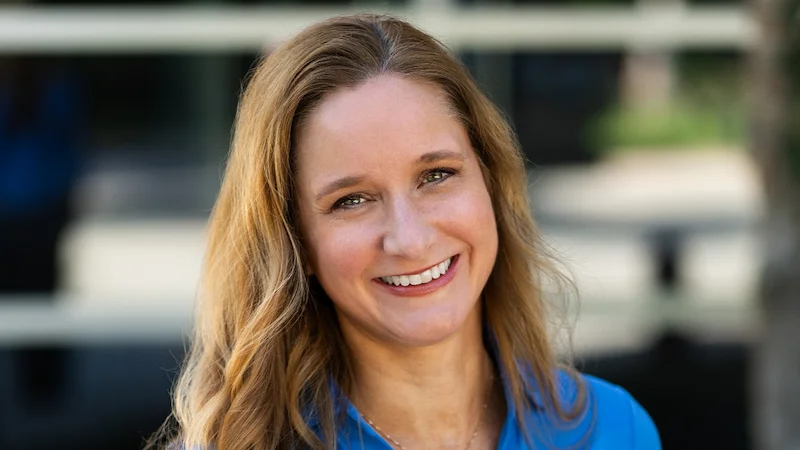The need to expand how we serve the autism community is only expanding. A new analysis released this month found the diagnosis of autism is occurring earlier and earlier in young children. Early detection matters because it can determine how we can best serve our kids. Empowering families with accessible school options early on not only offers solutions for children with diverse learning needs, but more specifically, it can change the life of a student with autism.
Autism is a complex, lifelong developmental condition that typically appears during early childhood and can impact communication, social skills, and self-regulation. Autism can be defined by a certain set of behaviors, and the experience can present in varying degrees, and is different for everyone. Today, more than 7 million individuals across the U.S. are on the autism spectrum, and it’s one of the fastest growing developmental disabilities in the nation. In fact, the new statistic is 1 in 31 children are now diagnosed annually in the U.S. Merely five years ago, it was estimated that the ratio was closer to 1 in 36 children. Experts agree the sharp increase is due to the expanding awareness of autism — and also changes to the criteria of how the condition is diagnosed.
As a parent of a child with autism, I can speak firsthand to the powerful yearning to provide both the academics and the therapies to help our kids thrive. I vividly remember sitting in an Applied Behavior Analysis (ABA) clinic, with the mother sitting next to me in tears. The clinic provides individualized therapy sessions, leveraging a systematic teaching that breaks skills down into small, easy-to-learn steps. With the ABA approach, multiple opportunities are provided to practice each skill, and progress is continuously measured to make an informed decision regarding adjustments to the child's treatment plan. It’s what increased awareness looks like in action.
The mother next to me in the ABA clinic saw her child’s remarkable growth, but was in tears since she just found out her insurance only covered six-months of services of ABA. Now her child had to return to a traditional school setting, which didn’t offer the same personalized instruction for her child with autism. Any parent would understand the desperation to provide our children with every resource at our disposal.
It wasn’t until years later I learned of an autism-focused charter school in Florida. This felt aspirational. A dream. I was inspired. The school offered ABA, the gold standard treatment for autism in an academic setting. They had a low teacher to student ratios, and importantly, staff highly trained in working with students with autism. As a public charter school, it was tuition-free for all students. And it became my mission to bring this model to my home state of Texas, for our children and our communities.
With overwhelming community support, we opened the doors to Thrive Center for Success in The Woodlands in 2022, proudly becoming the first autism-focused charter school in Texas. We initially served 85 students, kindergarten through 5th grade, with plans to add a grade level each year up to 12th grade. Today, Thrive continues to meet an immense need for better options in The Woodlands and Magnolia community. Now serving kindergarten through 8th grade with 180 students enrolled for the 2025-26 school year, we have over 300 students on the waitlist. What’s more, we’re seeking to expand to add a Houston area campus during the 2026-27 school year.
After seeing the benefits of ABA in a school setting, Thrive plans to branch out across other communities in Texas, starting with a second campus in Houston. We want Thrive’s model to open doors for others, and serve as a proof point that a school tailored to meet the needs of students with autism can result in better outcomes, so they can reach their full potential. We’re focused on finding ways to assist families and children with autism gain access to academics, therapies, recreational programs, and other supports necessary for these families to thrive.
We intentionally incorporate ABA programs into academics and behavior, which are specifically developed and designed to meet the developmental needs of each child. And it’s working. By the end of the 2024-25 school year, 82% of our students either mastered or demonstrated significant growth on their iReady ELA Diagnostic. In math last school year, 89% of our students either mastered or demonstrated significant growth.
There is no right or wrong way of thinking, behaving, or learning. But what we’re doing at Thrive is having a positive impact. Accessibility and connection is everything. To connect each learner with the support services that can set them up to thrive — and to connect to each other.
Elizabeth Goldsmith is the Founder and Executive Director of Thrive Center for Success. Her focus is on finding ways to assist families and children with autism gain access to academics, therapies, recreational programs, and other supports necessary for these families to thrive.

